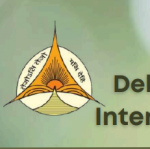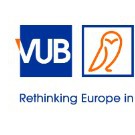UNU-CRIS Contributes Two Policy Briefs to the Think20 Italy Summit
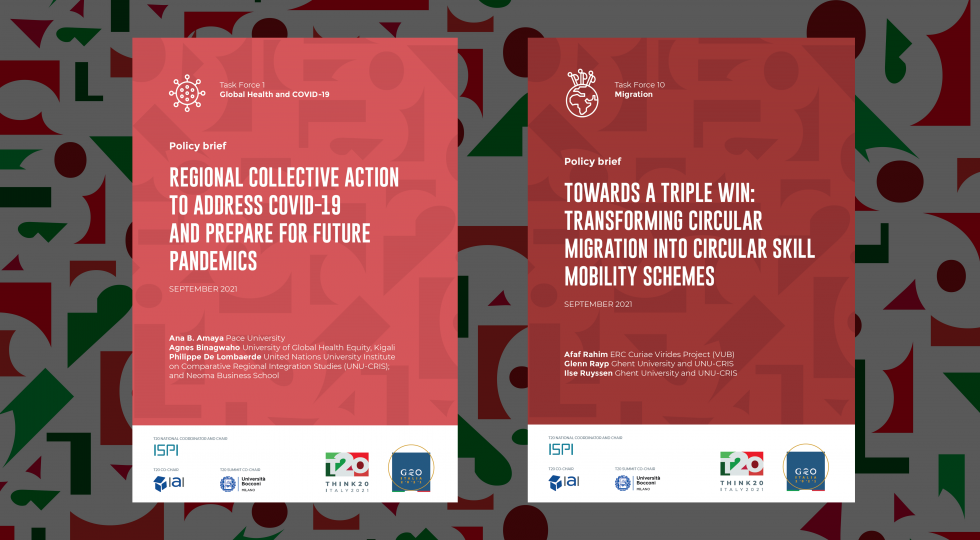
UNU-CRIS is honoured to have contributed to the Think20 Italy Summit that gets underway today in a hybrid format from Milan, Italy.
Four UNU-CRIS researchers served on two separate task forces and co-authored two policy briefs for the group, which is the academic arm of the G20 and brings together some of the world's brightest minds to discuss our greatest challenges and formulate recommendations that will be presented to the G20 later this month.
Confirmed speakers at the summit include Antonio Guterres, Secretary-General, UN; Kristalina Georgieva, Managing Director, IMF; Tedros Adhanom Ghebreyesus, Director-General, WHO; Patricia Espinosa, Executive Secretary, UNFCCC; Vint Cerf, Chief Internet Evangelist, Google; Luigi Di Maio, Italian Minister of Foreign Affairs and International Cooperation; Esther Duflo, 2019 Nobel Laureate in Economic Sciences; and Jeffrey Sachs, Director, Center for Sustainable Development, Columbia University, plus many more.
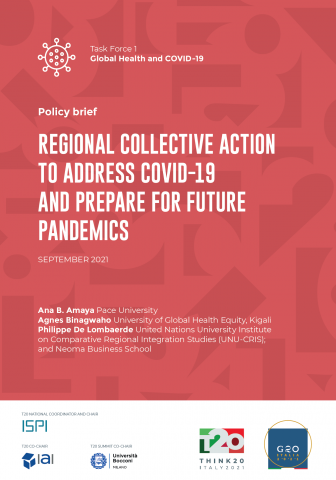
Regional Collective Action to Address COVID-19 and Prepare for Future Pandemics
Ana B. Amaya
Pace University and UNU-CRIS
Agnes Binagwaho
University of Global Health Equity
Philippe De Lombaerde
UNU-CRIS
The need for regional cooperation in addressing health threats and supporting preparedness is clear. Regional cooperation around COVID-19 has varied, reflecting disparities in political support, resources and health governance across regions, while highlighting the urgency
for strengthening efforts to address the current pandemic and future crises.
We recommend that G20 countries support regional organizations to foster a coordinated regional health response; reaffirm their support for the World Health Organization (WHO) and other regional organizations; promote regional needs in discussions around pandemics; invest in scaling-up capacity for data sharing and for the production of supplies, vaccines and medicines; and foster inter-regional cooperation.
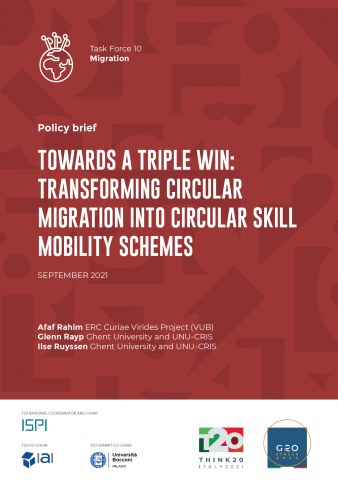
Towards a Triple Win: Transforming Circular Migration Into Circular Skill Mobility Schemes
Afaf Rahim
ERC Curiae Virides Project (VUB)
Glenn Rayp
Ghent University and UNU-CRIS
Ilse Ruyssen
Ghent University and UNU-CRIS
Expanding legal migration pathways is often framed as a panacea to curb irregular migration and mitigate the effects of population aging in immigration countries, while also fostering source countries’ economic development and immigrants’ income. Yet, policy initiatives to expand migration have not gained significant momentum, and available migration windows tend to prioritise highly skilled workers leading to a mismatch between legal admission policies and the average profile of irregular migrants. We propose expanding legal pathways for all skill levels by transforming circular migration into innovative schemes that combine vocational training in home countries with work-related migration opportunities for selected trainees.

